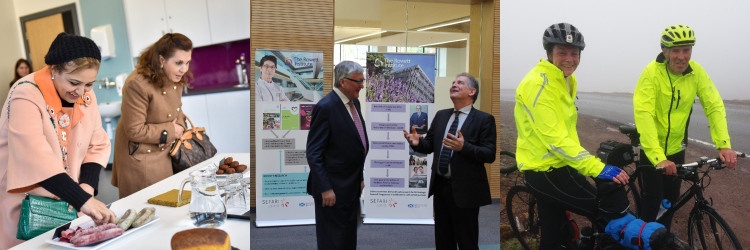News
Fergus Ewing MSP visit
At the beginning of April Fergus Ewing, MSP Cabinet Secretary for the Rural Economy and Connectivity visited the Rowett. The Cabinet Secretary was able to see around our excellent institute, including our unique centre for human trials. He then heard about some of the cutting-edge science, highlights included our successes in reformulation and working with industry; how we are turning vegetable waste to benefit health and nutrition, the alternative protein sources that we are investigating as well as the impact of our microbiology research on both human and animal health.
Much of this research is funded by the Scottish Government, who also provided a substantial amount of funding towards the building itself; so this was an opportunity to demonstrate the practical application of our research.
Some photos of the visit can be seen here ->
Her Excellency Dr Sheikha Aisha Bint Faleh Al Thani visit
Her Excellency Dr Sheikha Aisha Bint Faleh Al Thani was a visiting speaker to the University of Aberdeen as part of International Women’s Day this year, and while she was here, she visited the Rowett. She had the opportunity to see our Human Nutrition Unit as well as hearing about our research into reformulation, neurobiology and epigenetics.
Some photos of the visit can be seen here ->
Professor Lora Heisler receives outstanding scientific achievement award

As part of her award, Professor Heisler presented the OSAA Lecture on Monday, June 25 at the American Diabetes Association's 78th Scientific Sessions held at the Orange County Convention Centre in Orlando, Florida. The American Diabetes Association’s annual conference is the world's largest scientific meeting focused on diabetes research, prevention and care.
Professor Heisler is Chair in Human Nutrition and Head of the Obesity and Food Choice Division at the Rowett Institute, as well as an elected Fellow of the Royal Society of Edinburgh. Her career scientific contributions include seminal discoveries in the brain control of appetite and blood sugar that demonstrate her innovation.
Read more ->
View a video of Lora discussing her award ->
Hungry Squirrel win the Healthy Choice award at the Scotland Food and Drink Excellence Awards
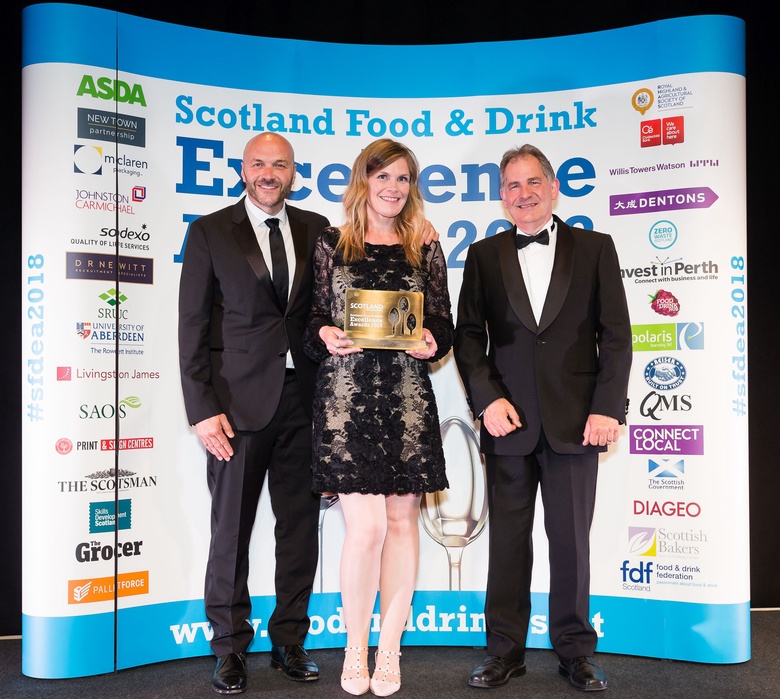
The Rowett Institute sponsored the Healthy Choice award, which celebrates companies and products whose very ethos has healthy eating at heart. Institute director Professor Peter Morgan presented the 2018 Healthy Choice award to Hungry Squirrel; whose ABC nut butter beat the other 9 competitors to the top spot.
12 product-focused categories were judged by a thorough process, which included the scrutiny of packaging, quality of product and taste. In the course of their assessment of the entries, the judges sampled 197 Scottish products ranging from cheese and chocolate, to ginger beer and gin.
Professor Peter Morgan, director of the Rowett says: “The Rowett Institute is proud to have sponsored the Healthy Choice Food and Drink award for another year, and congratulations to the winner 'Hungry Squirrel'. As a research Institute, we are keen to contribute to the continued development of the Scottish Food and Drink industry, and it is always a pleasure to be involved with Scotland Food and Drink, which does so much to promote the industry."
Blood, sweat and gears
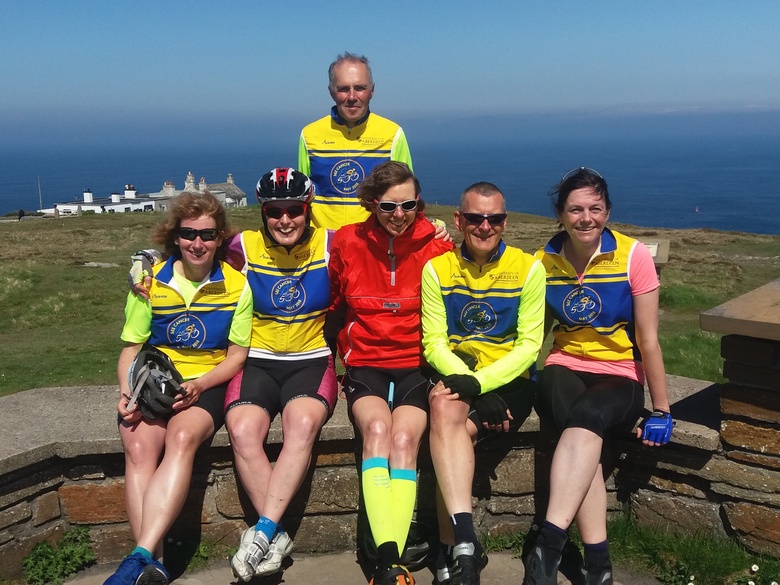
Professor Jennie Macdiarmid said : “It is fantastic that by doing the North Coast 500 we were able to raise awareness of cancer, as well as so much money. My fear of whether it was possible to cycle 550miles in 9 days was quickly overcome once we started and it turned into a lot of fun. We had brilliant team of cyclists and the most amazing support team who kept our spirits sky-high over the 9 days!”
Policy
Hungry for Change?

Attended by both academics and delegates from the food and drink industry, the workshop (Hungry for Change - how to increase fruit, vegetable, fibre and fish oils in products) was an opportunity to hear about the latest innovations and for networking.
With the recent introduction of the sugar tax on soft drinks and the launch of a Scottish Obesity Strategy, food and drink producers are facing challenges when it comes to manufacturing healthier products.
Find out more information, read a synopsis of the day and download the presentations here ->
Monitoring and reporting mycotoxin contamination
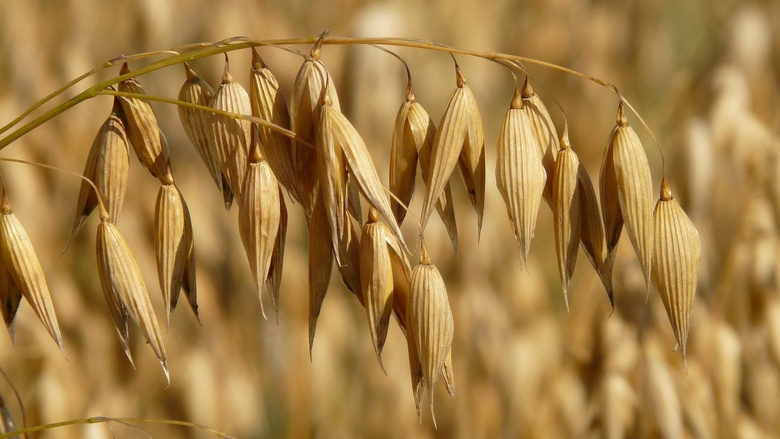
A report of the event was written summarising the presentations and discussion and identifying key areas such as T2/HT2 toxins, ergot alkaloids and the challenge of imports monitoring following EU exit. The report is available to download as a pdf here ->
Research
Physical activity may boost the sirtuin system to improve metabolic health
Stuart R. Gray, Tom P. Aird, Andrew J. Farquharson, Graham W. Horgan, Emily Fisher, John Wilson, Gareth E. Hopkins, Bradley Anderson, Syed A. Ahmad, Stuart R. Davis, Janice E. Drew
Sprint interval training (SIT) is reported to improve blood glucose control and may be a useful public health tool. The sirtuins and associated genes are emerging as key players in blood glucose control. This study investigated the interplay between the sirtuin/NAD system and individual variation in insulin sensitivity responses after SIT in young healthy individuals.
Before and after 4 weeks of SIT, body mass and fat percentage were measured and oral glucose tolerance tests performed in 20 young healthy participants (7 females). Significant reductions in body weight and body fat post-SIT were associated with altered lipid profiles, NAD/NADP, and regulation of components of the sirtuin/NAD system. Variable improvements in measured metabolic health parameters were evident and attributed to different responses in males and females, together with marked inter-individual variation in responses of the sirtuin/NAD system to SIT.
See a video of Janice Drew explaining the impact of this study.
Protein for Life
Marta Lonnie, Emma Hooker, Jeffrey M. Brunstrom, Bernard M. Corfe, Mark A. Green, Anthony W. Watson, Elizabeth A. Williams, Emma J. Stevenson, Simon Penson, and Alexandra M. Johnstone
This review of optimal protein intake, sustainable dietary sources and the effect on appetite in ageing adults considers the protein needs of an ageing population, sustainable protein sources, appetite-related implications of diets high in plant proteins, and related areas for future research.
The publication focusses on the daily intake of protein and how individuals source this protein, as well as how the consumption of protein differs in the UK from the rest of the world. With questions over the optimal source of protein and quality control issues the discussion shifts to the use of sustainable plant proteins as an alternative source, and how these different sources may affect appetite in different groups of people.
The authors conclude that the recommended protein intake for ageing adults may not be sufficient for muscle mass and strength maintenance, and that incorporation of sustainably sourced plant proteins may be a promising strategy. There is limited data regarding the effects of plant protein on appetite, though some studies suggest positive effects of replacing animal proteins with plant-originated protein in both normal weight and obese individuals. More research is required to understand these effects.
The Big Breakfast study

A growing body of evidence highlights the importance of the biological clock as a modulator of energy balance and metabolism. Recent studies in humans have shown that ingested calories are apparently utilised more efficiently in the morning than in the evening and this manifests as improved weight loss, even under controlled calorie intake conditions.
The mechanisms behind this enhanced morning energy metabolism are not yet clear, although it may result from behavioural adaptations or circadian driven variations in physiology and energy metabolism. A major objective of the newly funded Big Breakfast Study therefore is to investigate the mechanistic basis of this amplified morning energy consumption leading to enhanced weight loss, by exploring behavioural and physiological adaptations in energy expenditure alongside the underlying circadian biology. This report briefly discusses the current research linking meal timing, circadian rhythms and metabolism; highlights the research gaps; and provides an overview of the studies being undertaken as part of the Medical Research Council-funded Big Breakfast Study.
Article ->
Professors Peter Morgan and Alexandra Johnstone talk about the Big Breakfast study in an MRC blog
Volunteer for our Big Breakfast study ->
Community Engagement
The Nature of Food

Dr Karen Scott and Dr Silvia Gratz from our "Gut Health" research programme, were on hand to provide expert answers and also delivered a short talk to an intersted audience. It was a very busy day, but all of our visitors enjoyed their day.
First look (and taste!) of new healthy recipes at May Festival
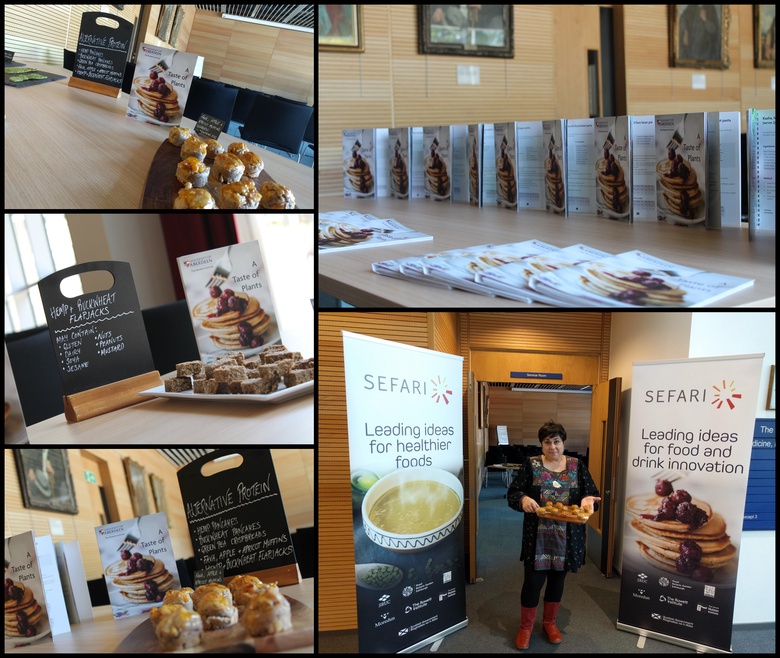
As part of this, the team looked at crops which present a high protein content and have historically been grown in Scotland or are currently grown elsewhere in similar climates and could be introduced to Scotland. Having looked at many potential candidates, the research focused on pea, fava bean, hemp and buckwheat.
As a result of the research, the team have now compiled a brand new recipe book A Taste of Plants, and members of the public who attended the Rowett Tours during the May Festival will had an opportunity to try samples directly from the book.
Dr Madalina Neacsu, who worked on producing the recipe book, commented: “Our inspiration for the book came from a set of human dietary intervention studies we carried out where we studied sustainable crops that can be grown in Scotland, assessing their nutritional and health benefits. For this, we had to design various plant-based recipes for feeding our volunteers, which needed to be rich in the sustainable crops we studied such as buckwheat, green pea, hemp and fava bean.
“The recipes we created were popular with the volunteers, and so we thought that it would be a good idea to create a recipe book available for everybody. To be able to produce a book like this is a great outcome of our research and allows us to share with the wider world how the research we carry out here at the Rowett, can contribute towards a sustainable diet, which is healthy for the planet and for people.”
A Taste of Plants is available to download from our website ->
Royal Highland Show
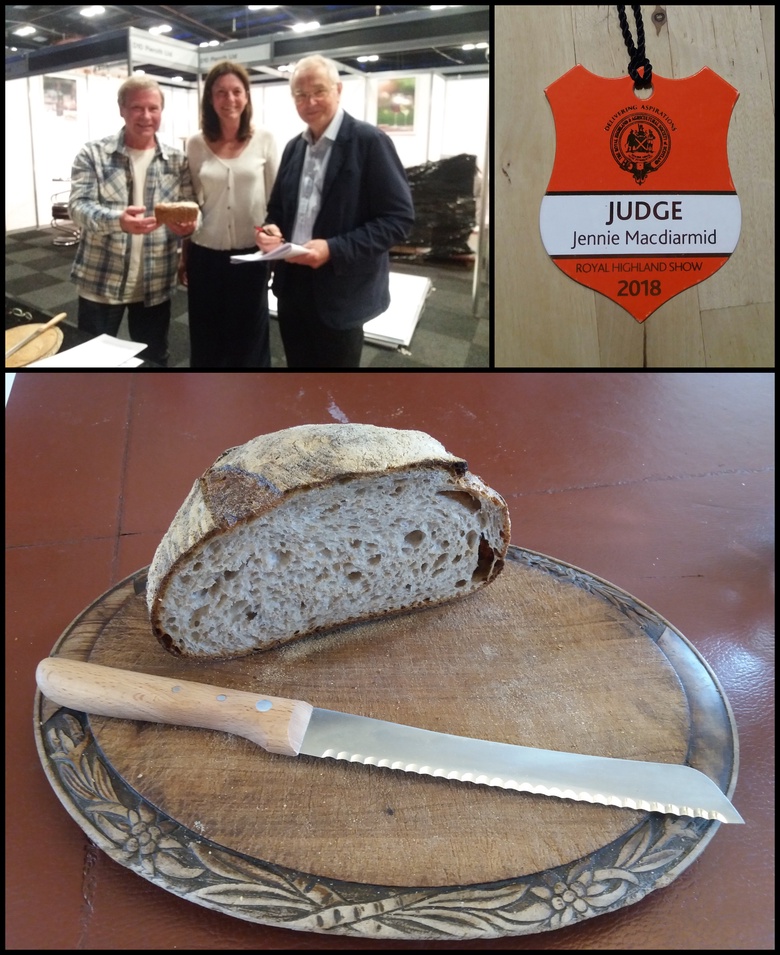
This event was an extension of the Good Food Champions course that is jointly run by these education partners. Organised by RHET, and accredited by the General Teaching Council, this year-long course has given teachers the opportunity to engage with all levels of the food, farming, cookery and manufacturing chain and to become “Good Food Champions”.
In the week leading up to the Show, Professor Jennie Macdiarmid was one of the judges for the 2018 Scottish Bread Championship. Jennie was one of eight judges “rising” to the challenge to taste bread from seven categories and “prove” that one loaf was the supreme champion.
For more information visit our website
For information about our privacy policy and to sign up to our newsletter click here ->

